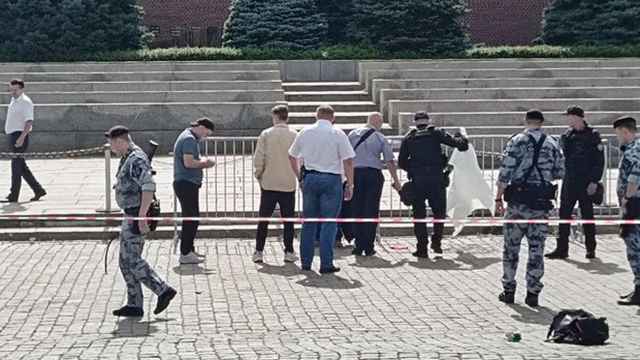Two Russian metals firms that blazed a trail into the FTSE 100 are set to drop out of London's blue chip index this month, leaving questions about relations with investors, appetite for mining stocks and the benefits of a cumbersome premium listing.
The departure of precious metals miner Polymetal and steelmaker Evraz after less than two years signals the end — for now — of a move into the major league that had been expected to pave the way for more Russian arrivals.
It coincides with a debate about governance and controlling majorities at foreign-owned miners after investors were burnt by troubles at Kazakh miner ENRC and Indonesia-focused Bumi.
While Polymetal and Evraz both have large foreign shareholders — Evraz's biggest investor is Chelsea football club owner Roman Abramovich — they have primarily been caught out by falling metals prices and demand worries that spooked investors.
is still something that Russian companies
may consider.’
John Edwards
LSE
"Evraz definitely faced the problem that it was the only steel name in the FTSE 100," said analyst Boris Krasnojenov at Renaissance Capital in Moscow.
"There's been a fundamental sell-off of Russian steel that continues, and we don't see many bright spots that would support stocks. If any of the other steel mills were in the FTSE 100, they'd be in the same situation."
Polymetal has been hit by the sharpest drop in the gold price in 30 years and the relative weakness in silver.
Both shares have lost more than 40 percent this year, making Polymetal the 121st biggest by market capitalization and Evraz the 155th biggest.
Any company falling to 111th position or below is automatically deleted from the FTSE 100 each quarter, subject to confirmation from the exchange. The latest quarterly review will take effect at the end of this month.
While the exit can be primarily blamed on commodity markets, analysts and advisers say it could put Russian rivals off moving to once-coveted premium listings from global depositary receipts that already let international investors buy shares.
A premium listing gives companies access to a deeper pool of investment capital and opens the path to a high-profile FTSE index, but it also carries more requirements about governance, disclosure and ongoing reporting obligations.
"I wouldn't use the word hassle, but it is a question of cost benefit," Gary Schweitzer, a partner at Ernst & Young in Moscow who is also capital markets director and IPO leader.
"The premium listing, because of the requirements for the listing, in addition to ongoing reporting obligations, is right now less popular."
Russian potash producer Uralkali, for example, had been considering a premium listing about the time of Evraz and Polymetal's entrance to the FTSE but has since said it sees little additional shareholder value in moving up from GDRs.
London's allure remains, and particularly for mining and metals groups, with Asia seen as a more strategic destination for firms seeking Chinese buyers or partners and a U.S. listing preferred for technology firms.
The London Stock Exchange's deputy head of primary markets, Jon Edwards, responsible for developing business in the former Soviet Union and Eastern Europe, said there was still appetite, with many metals firms preparing for a window of opportunity.
But he too pointed to the ongoing attraction of GDRs, which foreign investors often use to invest in companies based in emerging markets.
"[A premium listing] is still something that Russian companies may consider, but they will take a careful look at cost-benefit because the GDR market is still very effective," he said, pointing to Russian companies as among the most traded.
"It is still a very solid tool, a deep market, and there is quite strong liquidity."
Based on volumes so far this year, the LSE is expecting 2013 trade volumes of $300 billion on its international order book — or GDR market — the vast majority of which are Russian. This is up on historic levels but below a peak of $500 billion in 2011.
Undoubtedly, Russian and other former Soviet Union companies aiming for promotion will face deep skepticism from investors burnt by ENRC and BUM, who have questioned listing rules.
For now, the only remaining name from the former Soviet Union in the FTSE 100 is ENRC. Although the rules mean it looks set to retain its FTSE 100 place despite the 103rd biggest company, a potential buyout bid from its trio of billionaire founders may take it private.
"A company like Polymetal is a well-run company that has suffered from plunging gold and silver prices, but at the other end of the spectrum you have poor cost control, poor capital allocation, poor governance," said analyst Nik Stanojevic at stockbroker Brewin Dolphin.
Even once-darling stocks like Petropavlovsk offer a cautionary tale. Teetering on the verge of breaking into the FTSE 100 in 2009, the gold producer now looks like it could drop out of the FTSE 250, weighed down by a sharp drop in bullion prices, a strained balance sheet and aggressive short selling.
"The principle reason for being listed is to give you currency to buy things, and at the moment we are so lowly valued that it is an expensive exercise," Petropavlovsk chairman Peter Hambro said, adding that the company was not currently considering stepping back from a premium listing.
A Message from The Moscow Times:
Dear readers,
We are facing unprecedented challenges. Russia's Prosecutor General's Office has designated The Moscow Times as an "undesirable" organization, criminalizing our work and putting our staff at risk of prosecution. This follows our earlier unjust labeling as a "foreign agent."
These actions are direct attempts to silence independent journalism in Russia. The authorities claim our work "discredits the decisions of the Russian leadership." We see things differently: we strive to provide accurate, unbiased reporting on Russia.
We, the journalists of The Moscow Times, refuse to be silenced. But to continue our work, we need your help.
Your support, no matter how small, makes a world of difference. If you can, please support us monthly starting from just $2. It's quick to set up, and every contribution makes a significant impact.
By supporting The Moscow Times, you're defending open, independent journalism in the face of repression. Thank you for standing with us.
Remind me later.






